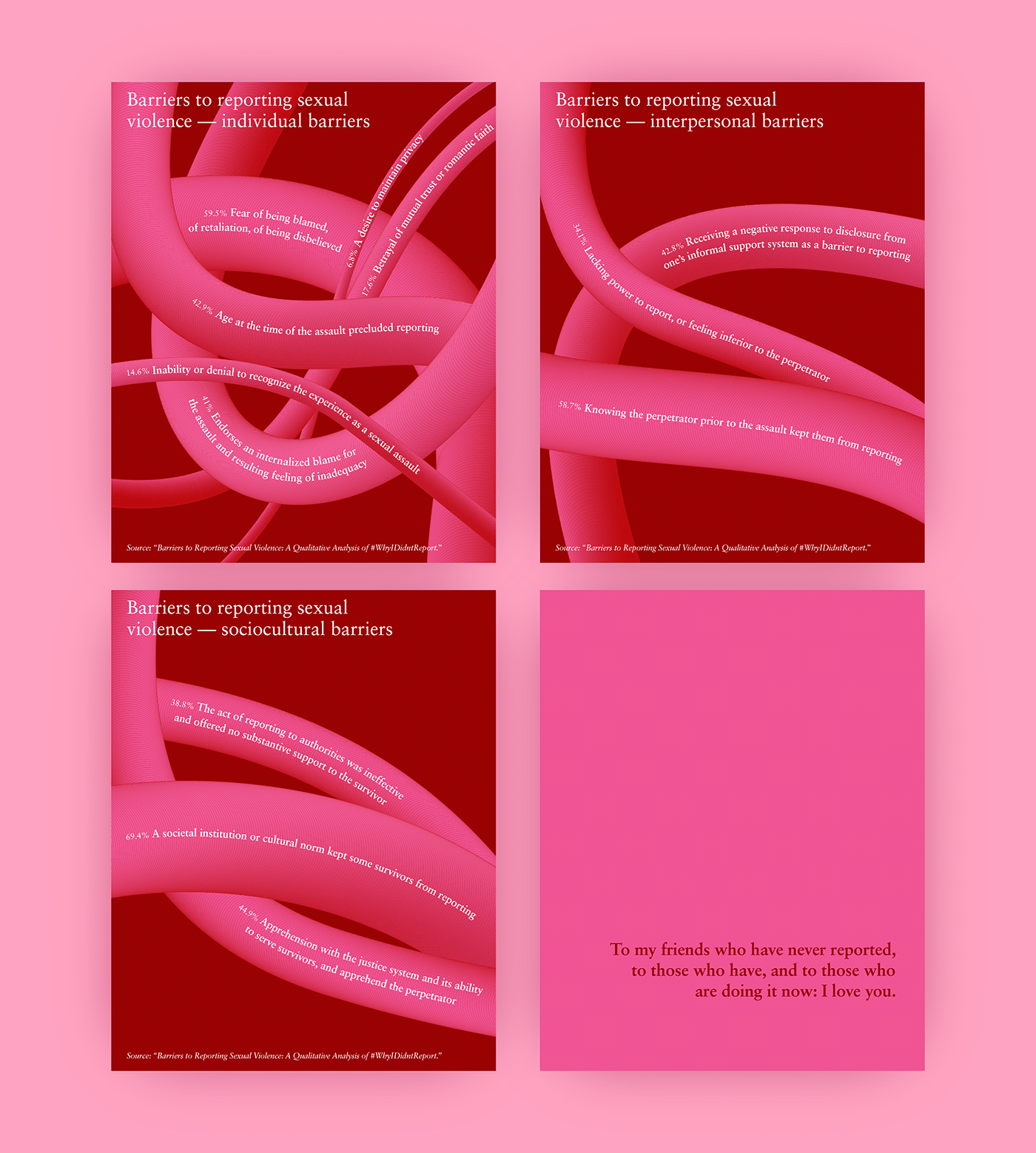Barriers to reporting
I visualized the data emerging for the research “Barriers to Reporting Sexual Violence: A Qualitative Analysis of #WhyIDidntReport.” There are cases where more than one barrier has been indicated, for this reason the percentages don’t add up to 100%.
Sharing data related to gender-based violence is extremely important, but I believe it is equally crucial to pay attention to the stories that we can’t see.
Source: “Barriers to Reporting Sexual Violence: A Qualitative Analysis of #WhyIDidntReport.”, Lindsay M. Orchowski, Lauren Grocott, Katie W. Bogen, Aderonke Ilegbusi, Ananda B. Amstadter, and Nicole R. Nugent.
First published online August 9, 2022.
Source: “Barriers to Reporting Sexual Violence: A Qualitative Analysis of #WhyIDidntReport.”, Lindsay M. Orchowski, Lauren Grocott, Katie W. Bogen, Aderonke Ilegbusi, Ananda B. Amstadter, and Nicole R. Nugent.
First published online August 9, 2022.
A project by Federica Fragapane
Instagram: instagram.com/federicafragapane




"“The study conducted thematic analyses of tweets including #WhyIDidntReport to examine barriers to reporting sexual victimization. [...] The hashtag trended in the United States in the late September 2018. [...] Within 2 days, 675,000 tweets trademarked by #WhyIDidntReport were posted on Twitter, describing the reasons why a victim of sexual violence may choose not to report to the police
[...] Barriers to reporting were identified across individual, interpersonal, and sociocultural levels of the social ecology. Common barriers to reporting included labeling of the experience, age, fear, privacy concerns, self-blame, betrayal/shock, the relation/power of the perpetrator, negative reactions to disclosure, and the belief—or personal experience—that reporting would not result in justice and societal norms."
[...] Barriers to reporting were identified across individual, interpersonal, and sociocultural levels of the social ecology. Common barriers to reporting included labeling of the experience, age, fear, privacy concerns, self-blame, betrayal/shock, the relation/power of the perpetrator, negative reactions to disclosure, and the belief—or personal experience—that reporting would not result in justice and societal norms."

A project by Federica Fragapane
Instagram: instagram.com/federicafragapane




